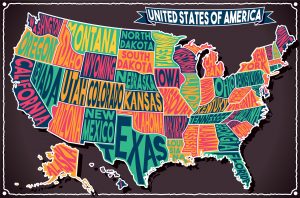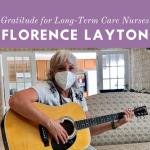First, They Saved Lives. Now, Nurses Want to Save America
 Amid a global pandemic that has sown chaos and misinformation in health care and claimed more than 100,000 American lives, nurses’ expertise is more relevant than ever. They’ve seen the failures of health care policy and delayed action on the ground. They are on the frontlines of the crisis, clamoring for adequate PPE, deciding who gets put on a ventilator, FaceTiming dying patients’ family members when visitors aren’t allowed. And across the country, nurses are hoping to bring those unique experiences to elected office.
Amid a global pandemic that has sown chaos and misinformation in health care and claimed more than 100,000 American lives, nurses’ expertise is more relevant than ever. They’ve seen the failures of health care policy and delayed action on the ground. They are on the frontlines of the crisis, clamoring for adequate PPE, deciding who gets put on a ventilator, FaceTiming dying patients’ family members when visitors aren’t allowed. And across the country, nurses are hoping to bring those unique experiences to elected office.
“Our leadership has to extend beyond traditional clinical roles,” says Rep. Lauren Underwood, D-IL, a registered nurse who was elected to Congress in 2018. “Even nurses who would never consider themselves political are now understanding really directly how policy decisions impact their practice and their patients’ experience.”
Underwood says she uses her nursing background in all aspects of her job in Congress, especially now. In May, she introduced a bill that would train thousands of unemployed Americans to be frontline health workers to support nurses and doctors in the fight against Covid-19. Another aims to provide access to mental health resources for those whose conditions have worsened because of the pandemic. She’s made combatting disinformation around the crisis a priority, holding virtual info sessions with experts. And she has worked to get more access to PPE, calling on President Trump to coordinate a federal response to the shortage, and introducing a bill to review the U.S.’s foreign medical supply chain to help ensure we never face another deficiency in crucial equipment or medicine from overseas.
Only two nurses currently serve in the U.S. Congress: Underwood and Eddie Bernice Johnson, a Democrat from Texas who in 1992 became the first registered nurse elected to the body. While the nurses currently running for state and local offices started their campaigns long before “Covid” became a household term, experts say that the nightmarish experience many have weathered in the last three months—not enough PPE, overrun hospitals, preventable deaths, unimaginable trauma—could inspire them to run in the future.
“I think our gut tells us that nurses are looking around saying, ‘You know, some different policies, some different decisions, some different leaders with a different voice could have saved us some heartache here,’” says Lisa Summers, who teaches health policy at the Yale University School of Nursing.




